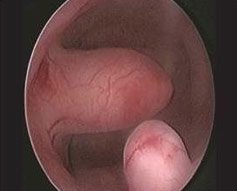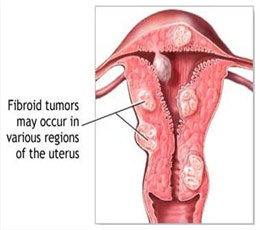
Period Problems
At Women’s Care, we believe you shouldn’t have to suffer with your periods.
Many women suffer from a range of difficulties with heavy, painful periods or even from absent or sparse periods. Ask your Women’s Care provider if these issues are a concern to you. Your Women’s Care doctor is an expert in diagnosing and treating these issues.
Heavy Periods
Heavy periods can be a sign of problems with your endocrine or reproductive systems, and can also be caused by bleeding disorders. They can lead to anemia and cause you to feel fatigued and easily exhausted. Heavy periods can also be a large stressor in a woman’s life.
Heavy periods are frequently evaluated with blood work and a pelvic ultrasound done in the privacy and comfort of your Women’s Care provider’s office. Immediately after the ultrasound, you can review the quality results with your provider, determine whether further testing is needed, and identify the treatment that is most appropriate for you and your lifestyle.
Further testing for heavy periods can include an endometrial biopsy, sonohysterography, or hysteroscopy. These evaluations can detect and possibly treat conditions in the uterus that can cause heavy bleeding. These conditions include endometrial polyps, fibroids, endometrial hyperplasia, and endometrial cancer.

Endometrial Polyps
Endometrial polyps are thickenings in the lining of the uterus that can cause heavy and irregular bleeding. Typically, they must be removed to treat the bleeding and ensure that the polyp is not cancerous. This is done during hysteroscopy and endometrial polypectomy.
Fibroids
Fibroids are benign tumors of the muscle layer of the uterus. They can cause heavy bleeding, pressure, and pain. Fibroids are diagnosed on clinical exam and ultrasound. Depending on their clinical presentation, fibroids can be watched or treated with a variety of different techniques, both medical and surgical. Please speak to your Women’s Care provider if fibroids are a concern to you.

Endometrial Hyperplasia
Endometrial hyperplasia is a potentially precancerous condition of the lining of the uterus (endometrium). It can cause heavy or irregular bleeding. This can be the only warning sign of this uterine cancer-causing condition. It can be treated medically or surgically based on the specific type of endometrial hyperplasia that is diagnosed.
Cancer of the Uterus
Endometrial cancer is a type of uterine cancer. Warning signs can be irregular heavy bleeding, bleeding between periods, or bleeding after menopause. If you are experiencing these symptoms, please schedule an appointment with a Women’s Care provider. Any bleeding between periods or heavy bleeding should be taken seriously and evaluated. Evaluations to diagnose uterine cancer include endometrial biopsy, ultrasound, hysteroscopy, and D&C.
Treatment for Heavy Periods
Heavy periods can be successfully treated in a variety of different manners. Medical treatment can range from NSAIDS (non-steroidal anti-inflammatory medications) to hormonal support. Medications such as progesterone, oral contraceptive pills, and anti-inflammatories can be used. The Mirena IUD can also be used to treat heavy bleeding.
Sometimes surgical procedures are necessary for the treatment of heavy periods. These procedures include hysteroscopy, polypectomy, D&C- gynecologic, endometrial ablation, and hysterectomy.
Painful Periods/Dysmenorrhea
At Women’s Care, we believe that you shouldn’t have to suffer from painful periods. Many women of all reproductive ages suffer from painful periods every month. There are many successful treatments to alleviate this pain. Your Women’s Care provider focuses solely on women’s health issues like painful periods. Call today to schedule an appointment to discuss painful periods.
Causes of painful periods include ovarian cysts, hormonal imbalances, uterine abnormalities like fibroids, endometriosis, and many other conditions. Evaluation for painful periods can include pelvic examination, pelvic ultrasound, and other testing. Treatment for painful periods can include hormonal support like birth control pills, NSAIDs, or a variety of other medical treatments. Exercise and other non-medical treatments can provide healing benefits as well.
Once childbearing is complete, surgical options like endometrial ablation and hysterectomy can be considered.
Infrequent Periods
Pay attention to irregular periods. Infrequent periods can be caused by a variety of conditions. Diagnosis is made by pelvic examination, blood work, and possibly an ultrasound to check for endocrine disorders and ovarian disorders like PCOS (Polycystic Ovarian Syndrome). Treatment is based upon the findings, and typically involves hormonal medications that can be tailored to meet your needs, whether you desire contraception or are trying to conceive. Please speak to your Woman’s Care Doctor today if infrequent periods are troubling you.
